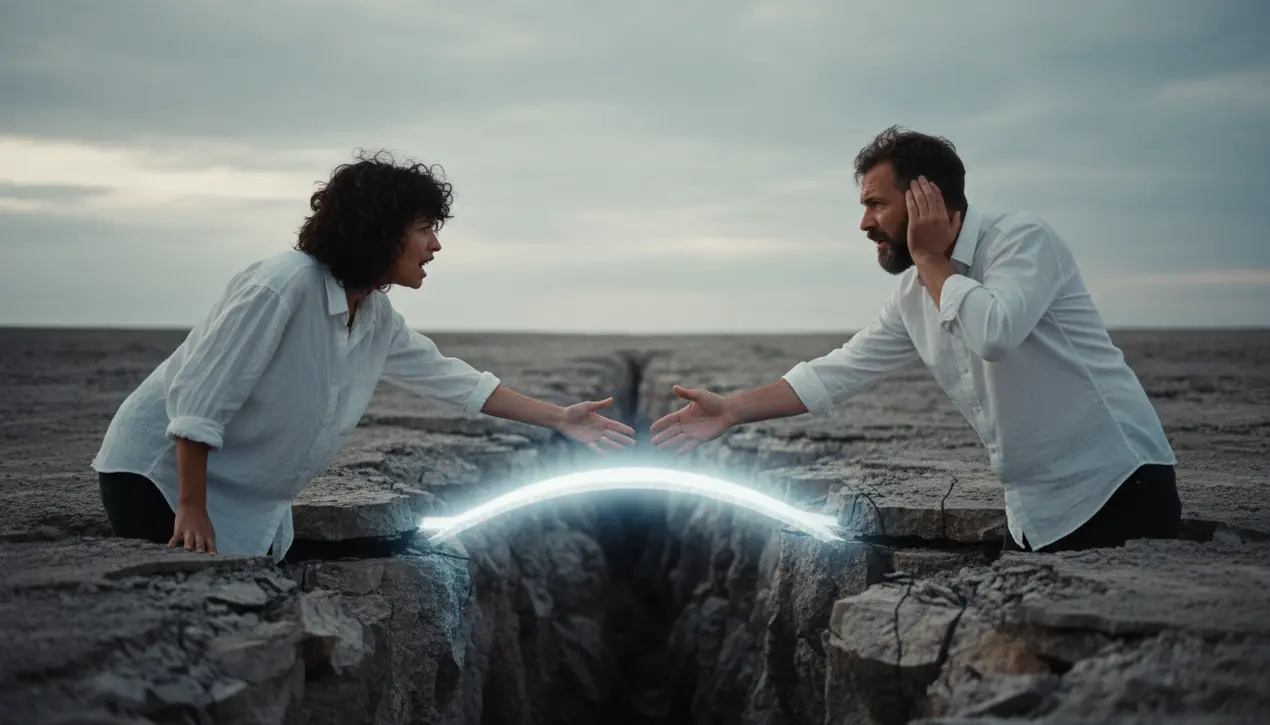
Scienceneuroscience
The Empathy Bridge: Mending Fractured Communication in a Divided World
LA
Laura Bennett
3 hours ago7 min read1 comments
It starts with a spark—that fleeting, glorious moment of perfect understanding where you feel truly seen. You are on the same wavelength, convinced the chasm between two separate minds has been bridged.Then, inevitably, the fracture appears. You are in the same room, having the same conversation, yet you inhabit two entirely different realities.This is more than a relationship trope; it is the fundamental human struggle for connection, playing out in our families, workplaces, and global politics. What happens when the bridge you built begins to crumble? In 1951, during the tense silence of the Cold War, humanist psychologist Carl R.Rogers addressed the Centennial Conference on Communications. His subject was not nuclear strategy, but something equally powerful: the very architecture of human understanding.Rogers posited that the major barrier to communication is not a deficit of vocabulary, but a failure of empathy. We often listen not to comprehend, but to prepare our rebuttal.We enter dialogues armed with our own agendas, fragile egos, and a desperate need to be right, constructing a soundproof wall between ourselves and the other. The antidote, he proposed, is a radical act of psychological generosity.It demands that we lay down our arms and genuinely attempt to see the world from the other's internal frame of reference—to understand the facts and feelings as they experience them. This goes far beyond passive hearing; it is an active, courageous endeavor to step into their world.It requires suspending judgment and the instinct to correct, and instead offering a simple, powerful validation: 'I am trying to see this as you see it. ' When an individual feels authentically heard, their defensive walls begin to lower.Conflict transforms into collaboration. This principle, rooted in therapeutic practice, holds profound power for daily life.A marital argument about finances is rarely about the numbers themselves, but the underlying fear and insecurity they represent. A manager addressing a disgruntled employee must look past the surface complaint to the core need for respect or autonomy.On a global scale, Rogers' ideas offer a quiet solution to the polarized shouting matches that dominate public discourse. True communication is not about winning a debate; it is a shared exploration of a common reality, however differently it is perceived. It is the patient, deliberate work of building a bridge, plank by plank, across the abyss, recognizing that the connection itself is the ultimate victory.
#communication
#psychology
#carl rogers
#conflict resolution
#neuroscience
#editorial picks news
Stay Informed. Act Smarter.
Get weekly highlights, major headlines, and expert insights — then put your knowledge to work in our live prediction markets.
Related News
Comments
Loading comments...
© 2025 Outpoll Service LTD. All rights reserved.